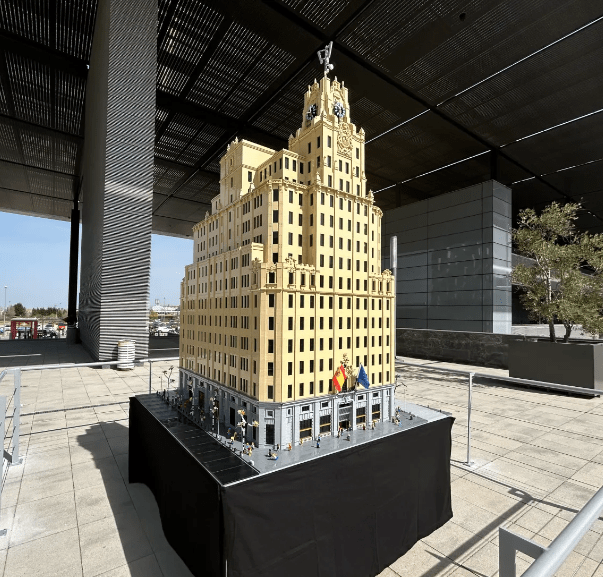In Montpellier (Occitania, France) the new Hydropolis science park dedicated to water embodies the organized gathering of the water science community to structure the strengths and assets needed to address these issues
The inauguration of Hydropolis took place on March 30. Built on the campus of the Faculty of Pharmacy, the three-story building, which covers 3,130 m2, required an investment of 10 million euros, financed by the Occitanie Region, the University of Montpellier, the CNRS and the IRD. On a privileged site in the heart of Montpellier, the Hydropolis building frames a garden planted with trees, a bucolic break for visitors and a botanical tool for the students of the Faculty of Pharmacy, who can be seen in the middle of practical work.
This science park dedicated to water is unique in France: “For the moment, there are no facilities of this nature specifically dedicated to water,” says Eric Servat, director of the Unesco Icireward International Center. The new water science campus brings together the water research laboratories HydroSciences Montpellier and G-EAU (as part of the Hydropolis project to be set up on the Inrae campus in Lavalette), as well as the Unesco Icireward International Center and the Montpellier Observatory for Environmental Research (OREME) and its high-level analytical geochemistry platform.
DOUBLE OBJECTIVE
While the Hydropolis building is already home to research teams focusing on water resources, contaminants and health, and in particular the chemical and microbiological characterization of water resources, a second building is to be built on the Lavalette site, with a focus on water uses, particularly in agriculture. The site will not only host the social science actors concerned by the issue, but will also rely on the existing infrastructures dedicated to agricultural experiments.
“In total, 400 scientists make up the Montpellier water research community,” says the director of the Unesco Icireward International Center, who initiated this innovative project, ” which has always been supported by the University of Montpellier. The project has a twofold objective: ” Hydropolis embodies the gathering of the water sciences community in Montpellier, but this project also aims to bring together research teams and the business world. This rapprochement has been complicated until now by the geographical dispersion of the different research forces in the field of water.
FACILITATING RECONCILIATION
“The new Hydropolis building has been designed to facilitate this rapprochement thanks to spaces specifically dedicated to welcoming companies and materializing interactions with the economic world. Hydropolis will thus strengthen cooperation between industrialists and research teams in order to facilitate technology transfers, particularly in areas related to water quality and the reuse of treated wastewater.
The building will be home to the management of the Aqua-Valley competitiveness cluster, whose members include nearly 250 companies. To accommodate them, there will be dedicated offices, as well as large, bright workspaces that will make it possible to host companies on collaborative R&D projects and facilitate the gathering of all the forces present in the water sector. ” It’s a question of giving concrete expression to Montpellier’s position in the field of water in the broadest sense of the term, and not just in the academic world,” emphasizes Eric Servat, who also points out the importance of water issues in the city’s projects.
AN IMPORTANT SIGNAL
“In this respect, the arrival of Aqua-Valley in our premises is very symbolic, it highlights the desire that we have in Montpellier to address the issue of water on all levels: scientific, economic but also social and societal. For Eric Servat, the creation of Hydropolis is an important signal that the water science community in Montpellier is organizing its scientific and technical resources in order to respond to all types of requests.
Hydropolis allows the Montpellier water community to be ” more visible and more attractive “, underlines Éric Servat, and embodies the importance it has gained in recent years. A research theme that is more topical than ever and to which the scientific community gathered within Hydropolis offers “the capacity to bring objective elements to the debate in order to make the best possible decisions,” insists Eric Servat.
The University of Montpellier (French: Université de Montpellier) is a public research university located in Montpellier, in south-east of France. Established in 1220, the University of Montpellier is one of the oldest universities in the world.
The university was split into three universities (the University of Montpellier 1, the University of Montpellier 2 and the Paul Valéry University Montpellier 3) for 45 years from 1970 until 2015 when it was subsequently reunified by the merger of the two former, with the latter, now named Paul Valéry University, Montpellier III remaining a separate entity.











